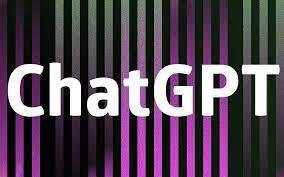Google Bard vs. ChatGPT: which is the better AI chatbot?

Google Bard and ChatGPT are two of the most prominent artificial intelligence (AI) chatbots available in 2023. But which is better? Both offer natural language responses to natural language inputs, using machine learning and millions of data points to craft useful, informative responses. Most of the time. These AI tools aren’t perfect yet, but they point to an exciting future of AI assistant search and learning tools that will make information all the more readily available.
As similar as these chatbots are, they also have some distinct differences. Here’s how ChatGPT and Google Bard measure up against one another.
Which is better, Google Bard or ChatGPT?
This is a tricky question to answer, as at the time of writing, you can only use Google Bard if you’re part of a select group of early beta testers. As for its competition, you can use ChatGPT right now, completely for free. You may have to contend with a waitlist, but if you want to skip that, there’s a paid-for Plus version offering those interested in a more complete tool the option of paying for the privilege.
Still, when Google Bard becomes more widely available, it should offer credible competition for ChatGPT. Both use natural language models — Google Bard uses Google’s internal LaMDA (Language Model for Dialogue Applications), whereas ChatGPT uses an older GPT-3 language model. Google Bard bases its responses to questions on more recent data, with ChatGPT mainly trained on data that was available prior to 2021. This is similar to how Microsoft’s Bing Chat works.
We’ll have to reserve judgment on which is the more capable AI chatbot until we get time to play with Google Bard ourselves, but it looks set to be a close contest when it is more readily available.
Are Google Bard and ChatGPT available yet?
As mentioned, ChatGPT is available in free and paid-for tiers. You might have to sit in a queue for the free version for a while, but anyone can play around with its capabilities.
Google Bard is currently only available to limited beta testers and is not available to the wider public.
What’s the difference between Google Bard and ChatGPT?
ChatGPT and Google Bard are very similar natural language AI chatbots, but they have some differences, and are designed to be used in slightly different ways — at least for now. ChatGPT has been used for answering direct questions with direct answers, mostly correctly, but it’s caused a lot of consternation among white collar workers, like writers, SEO advisors, and copy editors, since it has also demonstrated an impressive ability to write creatively — even if it has faced a few problems with accuracy and plagiarism.
Still, Microsoft has integrated ChatGPT into its Bing search engine to give users the ability to ask direct questions of the search engine, rather than searching for terms of keywords to find the best results. It has also built it into its Teams communications tool, and it’s coming to the Edge browser in a limited form. The Opera browser has also pledged to integrate ChatGPT in the future.
Google Bard was mainly designed around augmenting Google’s own search tool, however it is also destined to become an automated support tool for businesses without the funds to pay for human support teams. It will be offered to customers through a trained AI responder. It is likely to be integrated into the Chrome browser and its Chromium derivatives before long. Google is also expected to open up Google Bard to third-party developers in the future.
Under the hood, Google Bard uses Google’s LaMDA language model, while ChatGPT uses its own GPT3 model. ChatGPT is based on slightly older data, restricted in its current GPT3 model to data collected prior to 2022, while Google Bard is built on data provided on recent years too. However, that doesn’t necessarily make it more accurate, as Google Bard has faced problems with incorrect answers to questions, even in its initial unveiling.
ChatGPT also has a built-in plagiarism checker, while Google Bard does not, but Google Bard doesn’t have the creative applications of ChatGPT just yet.


